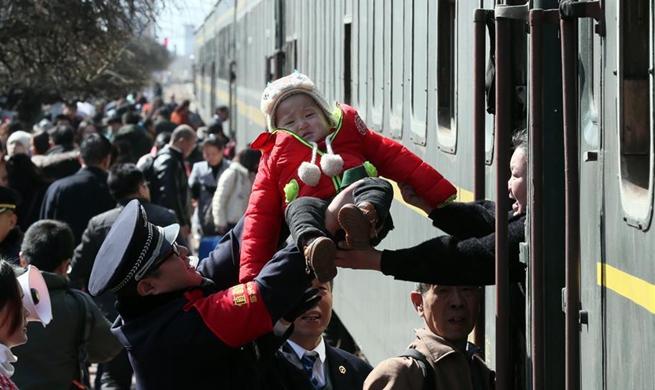LIMA, Feb. 22 (Xinhua) -- A combination of manmade and naturally occurring factors make fatal traffic accidents in Peru fairly common, as proved by Wednesday's crash, which killed 44 people when their passenger bus plunged off a cliff.
Reckless driving and a lack of proper signage coupled with Peru's mountainous topography and inclement weather, including frequent fog or heavy rains, cause deadly traffic accidents at an alarming rate.
While it's only February, this latest tragedy is not even the worst traffic accident of 2018.
The year had barely begun when on Jan. 2, a passenger bus collided with a tractor trailer on a winding clifftop highway near the capital Lima, then careened off the road and plummeted hundreds of meters onto a rocky beach below, killing 52 people.
The spot where the crash occurred is popularly known as "the Devil's Curve," and yet it appears motorists still don't approach the turn with caution.
Traffic accidents occur with such regularity across Peru that one user of a leading travel planning website warned tourists headed to Peru's renowned ancient city of Cusco to avoid the roads and take a flight.
Last year, 772 people were killed on Peru's non-urban highways alone, according to the National Road Safety Council (CNSV), though it was improvement over 2016, when that figure reached 812.
The latest statistics from the Transport and Communications Ministry (MTC) show there were a total of 89,304 traffic accidents in 2016.
In 2015, there were 306 road accidents per 100,000 inhabitants and 182 accidents per 10,000 vehicles, with a fatality rate of 9.5 people per 100,000 inhabitants, the MTC says.
As of 2015, Peru, which has a population of 32.5 million people, was home to 5,244,550 motorized vehicles, including cars and motorcycles. That figures is believed to be closer to six million now.

















